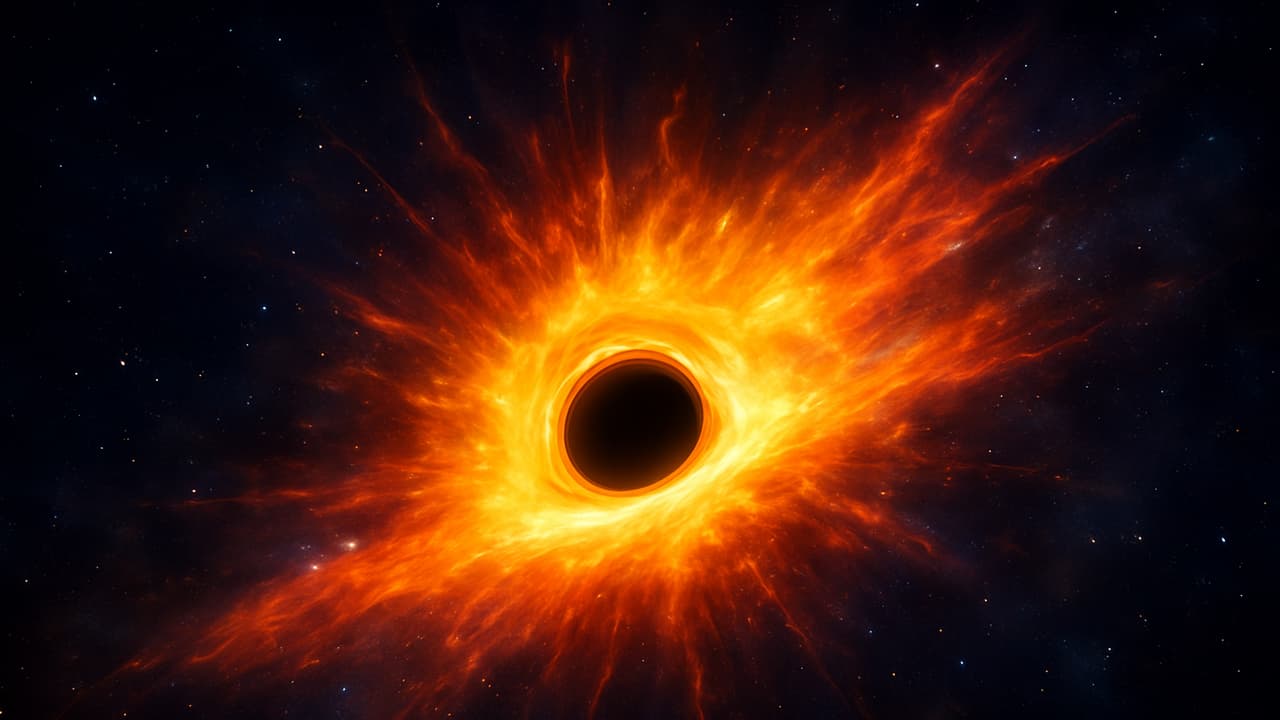Scientists predict a primordial black hole may explode within the next decade. Detecting it could confirm Hawking radiation and catalog all particles, potentially rewriting physics and our understanding of the universe’s origin.
Physicists may soon witness one of the most spectacular cosmic events: the explosive death of a primordial black hole (PBH). Once considered extremely rare, new research from the University of Massachusetts Amherst suggests there’s up to a 90% chance of observing one within the next decade. The findings are published in Physical Review Letters.
If detected, such an explosion could confirm Hawking radiation, reveal every known and unknown subatomic particle, and potentially rewrite our understanding of the universe’s origin.
A Rare Cosmic Event
Traditional black holes form when massive stars run out of fuel, collapse in a supernova, and leave behind regions of spacetime with gravity so strong that nothing can escape. These black holes are stable and incredibly heavy.
Primordial black holes, however, are theorized to have formed shortly after the Big Bang, less than a second into the universe’s history. Unlike stellar black holes, PBHs can be much lighter, yet still dense enough to trap light and matter.
Stephen Hawking predicted in 1970 that black holes have a temperature and can slowly emit particles, a process now known as Hawking radiation. “The lighter a black hole is, the hotter it should be and the more particles it will emit. As PBHs evaporate, they become ever lighter, and so hotter, emitting even more radiation in a runaway process until explosion. It’s that Hawking radiation that our telescopes can detect,” explains Andrea Thamm, co-author and assistant professor of physics at UMass Amherst.
Seeing What Was Thought Impossible
Although PBHs have never been observed directly, modern telescopes are capable of detecting the Hawking radiation they emit during their final explosive moments.
“We know how to observe this Hawking radiation. If we see it, we are seeing an exploding PBH,” says Joaquim Iguaz Juan, postdoctoral researcher at UMass Amherst.
Previous estimates suggested that such explosions might occur only once every 100,000 years. But the UMass Amherst team used new models considering hypothetical dark charges in PBHs, showing that these black holes could be temporarily stabilized before exploding. This adjustment leads to a much higher probability: a PBH explosion could occur once every 10 years.
“We’re not claiming that it’s absolutely going to happen this decade,” says Michael Baker, co-author and assistant professor of physics. “But there could be a 90% chance that it does. Since we already have the technology to observe these explosions, we should be ready.”
Why This Matters
If observed, an exploding PBH would:
- Be the first direct evidence of Hawking radiation.
- Provide a complete catalog of all subatomic particles, including known, hypothesized, and entirely unknown particles.
- Transform our understanding of physics and the universe’s origin.
“This would completely revolutionize physics and help us rewrite the history of the universe,” adds Iguaz Juan.
With current telescopes and research models in place, scientists could be on the brink of witnessing a primordial black hole explosion, a cosmic event that may finally reveal the universe’s deepest secrets.
